
Women’s History Month: Welsh films by, featuring and about women
To celebrate ‘Women’s History Month’ the Film Hub Wales team have put together a selection of Welsh films by, featuring or about Welsh women.
Among them are some names you might of heard of and some that are breaking onto the scene. From dramas, to documentaries and sci-fi, the cultural landscape of Wales becomes even more exciting this year thanks to the talents of these Welsh women delivering interesting, new narratives.
This list has been compiled as part of Made in Wales – a project that supports exhibitors and focuses on highlighting films and filmmakers with Welsh connections. Find out more about how we support filmmakers and distributors.
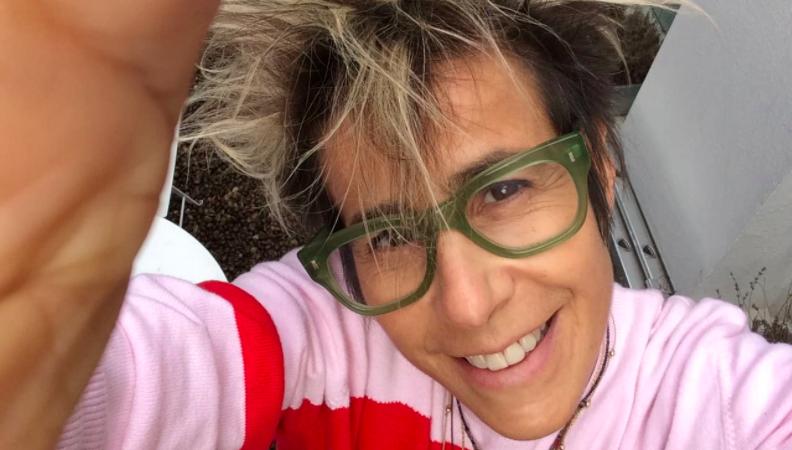
Women’s History Month: Sara Sugarman
Biography
Sara Sugarman was born in Rhyl, Denbighshire, Wales. She is an actress and director, known for Sid and Nancy (1986), Very Annie Mary (2001), Disney‘s Confessions of a Teenage Drama Queen (2004) and Vinyl (2012). In 1994 she won a place at Bournemouth Film School, scripted and directed three short films, nominated for a BAFTA, BAFTA CYMRU and won twenty three International film festivals.
When was the first time you realised you wanted to make films?
I sent away for a super 8 kit from the classified section of my dad’s newspaper when I was 11. It was plastic. I still have the camera and it was so so exciting! I wanted to remake JAWS on Rhyl beach and this was the time I realised I could make my imagination have a place telling stories.
What was the last project you worked on / made?
Just finished shooting SAVE THE CINEMA for Sky cinema.
What are you up to now? What is the next project you’re working on?
I am editing the film now. I feel very lucky in a time of a pandemic to be making a movie.
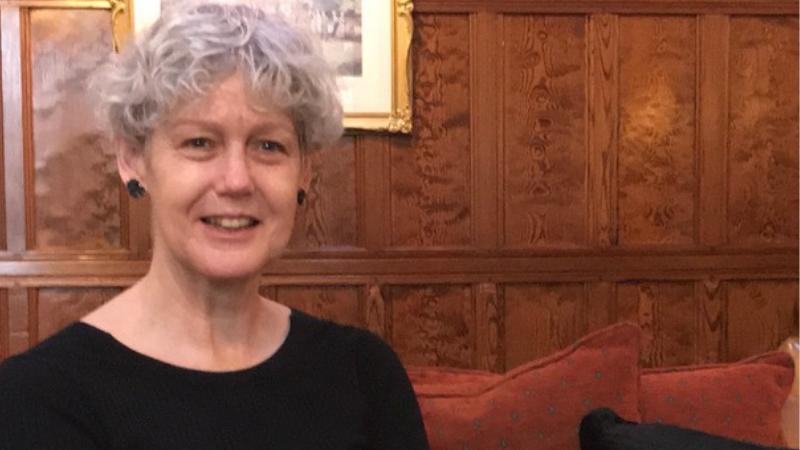
Women’s History Month: Pauline Williams
Biography
Producer, writer and former co-director of Gaucho production company. Producer of award winning feature films One Full Moon, Leaving Lenin and The Making of Maps. Multi BAFTA award winner as producer of numerous TV drama series & film. Mentor & producer of short film projects nurturing new directors & writers. Project manager for Off y Grid, a Film Hub Wales initiative. Currently producing short films in a pilot project between Wales and Nepal and developing a TV drama series for young people.
When was the first time you realised you wanted to make films?
As a child, cinema was a regular feature on a Saturday morning & over the years the more films I saw the more I fell in love with the big screen. However I always thought that working in films was an impossible dream for a girl from the sticks. After a brief mindset detour – when I thought I would become a surgeon- I realised that this was definitely not for me. Throughout adolescence, university & the early days of my career film has always fired my imagination & has transported me to other worlds & cultures.
What was the last project you worked on / made?
I wrote & produced a 3 part drama series for S4C, filmed in Wales & Majorca.
What are you up to now? What is the next project you’re working on?
Mentoring a filmmaking course for young people + waiting for venues to open to rekindle Off y Grid activities as a project manager/co-ordinator and producing a 6 part drama series for young people. Also I’m considering potential film projects. I have just accepted an invitation to produce/mentor 3 short films with young filmmakers from Wales as part of the International Youth Media Summit. This is a collaboration between Nepal & Wales. I’m also a producer/mentor on a forthcoming filmmaking course for young people in North Wales.
Useful links:
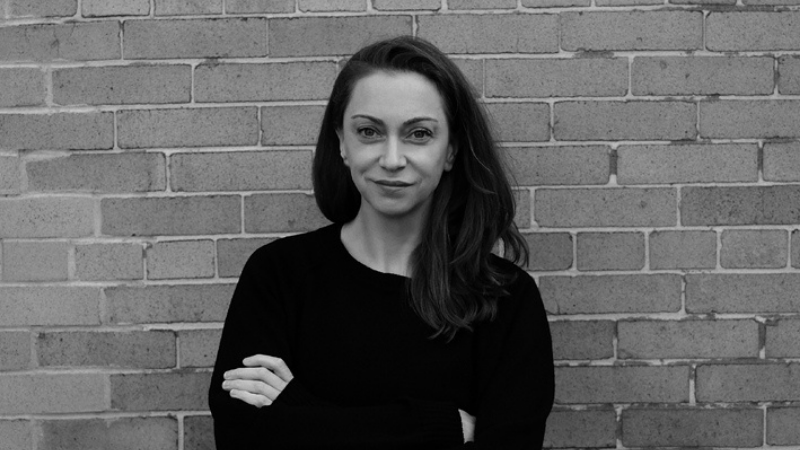
Women’s History Month: Claire Fowler
Biography
Claire Fowler is a writer-director from Wales who is based both in the US and UK. Her latest short, Salam, was the first Welsh short film to premiere at the Tribeca Film Festival, and was one of ten shorts selected for the Short Film Award at the BFI London Film Festival. It has since screened at more than one hundred festivals and won over ten awards including the BAFTA Cymru award for best short in 2020.
When was the first time you realised you wanted to make films?
I’ve always been attracted to the idea of filmmaking, and I’ve always loved narrative in the form of reading books, drawing, and watching films. But being from a small village in North Wales it didn’t really occur to me that directing was even an option for me– which sounds ridiculous when you consider that I studied Fine Art at University. I guess my naive teenage brain thought I could be a teacher and an artist, but never a director because only posh people did that- which just goes to show that representation matters. But at University I began to make little experimental films and I became completely absorbed in the process. There was this palpable magnetic pull towards filmmaking, but there was also a huge amount of resistance from me (and my family) in the form of very practical questions such as: How do I even begin to do this? Where will I find the money for each film? How can I make a living? But I had to give in to the gradual realisation that I would not be happy unless I pursued it. To be completely honest, it still feels very far away because I don’t yet make a full-time living from directing. Sometimes I manage to for months at a time, but right now I still need a back-up for the dry periods. What we do not talk about is the fact that most people who succeed in this business have independent wealth. To make even a short film a director has to not only raise the funds for the film itself, but also factor in lost earnings for all of the days spent casting, in prepro, on-set and then in post. If you don’t have all of the resources on hand, you still have to pay rent and bills, eat and travel and maintain other employment. It’s a real juggling act when you’re not wealthy and no one is ever going to give you extra credit for that.
What was the last project you worked on / made?
The last project I worked on as director was actually as a director-for-hire and it was unfortunately not an enjoyable experience. The writers were great, the scripts had a lot of potential and the cast and crew were lovely, but it was low budget, corners were cut, and certain directorial decisions were taken out of my hands by the producers. It only served to weaken the end result and make the process painful. A director’s job is to bring their vision to a project. One person takes on that responsibility because design by committee is disastrous. A director-for-hire has the additional responsibility of pleasing various people– execs, writers, producers. In this situation, there is a process that should be followed to ensure that everyone is happy– for example, casting and other creative decisions (such as hiring key crew) should be made in consultation, there should be in-depth concept and tone meetings for every episode, a post-production schedule, time set aside for a director’s cut. It should be a collaboration, but one that supports the director as the creative helmer of the project. This job did not follow the usual professional process, and it did not respect my role as director. Compromise is always possible when there is respect present in a relationship, but if someone insists on imposing their vision over the director’s, then there is going to be discord on-screen and off.
What are you up to now? What is the next project you’re working on?
I am developing a feature script with BBC Films and Sorcha Bacon of Try Hard productions. It has taken pretty much the whole of the pandemic to get the contract to a place where we are all happy, but I am really excited to be working with Sorcha, and Claudia and Eva of the BBC.
Useful links:
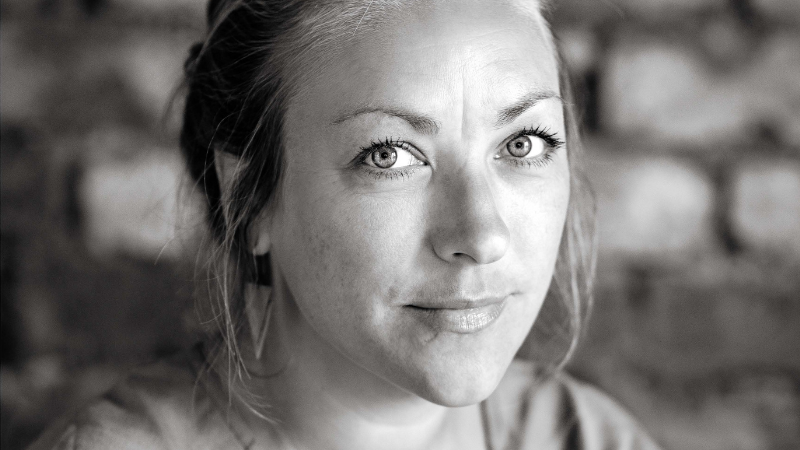
Women’s History Month: Alice Lusher
Biography
With over 20 years industry experience Alice has worked alongside some of the UK’s leading indies – joining Cardiff based, BFI vision awarded ie ie productions in 2012 as part the team behind the pioneering, award winning multi-platform project ‘American Interior’. In 2015 she launched ie ie’s drama department – building on the company’s international reputation for creating ground-breaking, cross-platform content and expanding their diverse slate of productions. Inspired by creatives working across disciplines, she collaborates with writers and directors to tell stories from under-represented voices and find sustainable ways to realise their vision – whilst making commercially viable film and television for global audiences.
Her award-winning shorts have screened internationally and in 2018/19 she produced Welsh broadcaster S4C’s first short form, bilingual drama series Merched Parchus (Respectable Girls) – which has received multiple award nominations including; RTS Cymru, Bafta Cymru, Celtic Media and Broadcast Digital. The series is being sold internationally by Videoplugger.
She then co-wrote and produced multi-disciplinary artist and filmmaker Tina Pasotra’s debut narrative short I Choose – released on the BBC in September 2020.
Alice is currently in post-production on her first co-production – Andrew Legge’s debut feature L.O.L.A; alongside ie ie’s MD Catryn Ramasut and Cowtown Pictures’ producers John Wallace and Alan Maher. She’s also exec producing a short documentary with emerging filmmaker Siôn Marshall Walters.
Alice was a 2017/18 participant on Birds Eye View Filmonomics – which ‘Advocates and educates the female perspective in film through “Action!” – not words’ – and was mentored by Katherine Biddle of See Saw Films through BFI.NETWORK x BAFTA crew 2018/19. In 2019 she was selected for BFI.network@lff international filmmakers, in 2020 for BFI Insight Producers Scheme and in 2021 for Rotterdam Producers Lab and LIM (Less is More) Development Lab.
When was the first time you realised you wanted to make films?
Hmm, I have no idea to be honest! I grew up in rural mid Wales without a TV though, so I guess I was always intrigued to find out about something I didn’t have any tangible experience of. My sisters and I used to make our own wildlife programmes by drawing on lining paper and feeding it through slits on the sides of a cardboard box! I also remember listening to Neighbours through the fuzzy white noise of an old tv set rigged up in the garden! But I think it was probably when I moved to London as a student that I really started thinking about working in film and tv – although it still felt a million miles away from becoming a reality, until I got a part time job as a runner at a production company when I was in my final year and it all fell into place from there!
What was the last project you worked on / made?
The last thing released was a short film called I Choose directed by Cardiff based multi-disciplinary artist and filmmaker Tina Pasotra; which we made through the Beacons scheme (currently available on BBC iplayer). We’re also currently in post-production on our first narrative feature – L.O.L.A by writer/director Andrew Legge which we’re co-producing with Cowtown Pictures in Ireland.
What are you up to now? What is the next project you’re working on?
Alongside L.O.L.A we have been really busy in development during the pandemic. I’ve also been lucky enough to have been selected for some fantastic labs, so have felt a bit like I’m back at school from my living room! We have a number of tv drama series’, two YA live action features – one of which we’re running industry workshops with LGBTQ+ young people alongside, and an animated family feature in development – all of which I’m really excited about – so fingers crossed one of those will be the next out of the starting blocks!

Women’s History Month: Clare Sturges
Biography
Clare Sturges is a writer and director based in Cardiff, Wales. She recently wrote and directed BAFTA Cymru-nominated narrative short THE ARBORIST through the BFI Network, which premiered on BBC Two and is currently available on BBC iPlayer.
Clare’s short documentary MY BRIEF ETERNITY won the BAFTA Cymru Short Film Award in 2016. The film was nominated for Best Short Doc at London Short Film Festival 2016, longlisted for a British Independent Film Award in the same year and the EE BAFTA for British Short Film in 2017. Clare won the BAFTA Cymru Breakthrough Award for her documentary SEXWORK, LOVE & MR RIGHT in 2015, which was acquired for broadcast by ABC Australia.
Since 2017, Clare has been shadowing director Euros Lyn – on Channel4 mini-series KIRI, Jack Thorne’s BBC adaptation of HIS DARK MATERIALS and Film4/Raw feature DREAM HORSE. She has also shadowed series DP Adriano Goldman on the Aberfan episode of Netflix’s THE CROWN (S3), and director Phil John on Sky’s LUCKY MAN (S3).
In 2020, Clare was awarded bursaries from Ffilm Cymru Wales and the Welsh Broadcasting Trust to support her development as a director of scripted work.
When was the first time you realised you wanted to make films?
I was 30 years old, recently made redundant from a desk job I hated, and freelancing as an advertising copywriter. One of my agencies asked me to write an AV script for a corporate client. I wasn’t sure what an AV script was and had to look it up. Then they asked me what the meta-narrative was and again I scurried off to Google to find out. A whole new world of visual storytelling opened up to me and I was hooked from then on.
What was the last project you worked on / made?
I wrote and directed narrative short The Arborist through the BFI Network scheme, via Ffilm Cymru Wales / BBC Wales. It’s a deeply personal film – a drama about grief and loss and the power of objects, places, people and memories to connect us to those we’ve lost.
What are you up to now? What is the next project you’re working on?
I’ve recently signed with United Agents and we’re working together to progress my career to the next level… having ‘generals’ with producers and execs, applying for career development opportunities and being put forward for jobs. It’s all about landing upon a lucky opportunity to break through into drama directing, while developing my own projects alongside. I’m currently writing my first feature film: a ghost story set in the Highlands of Scotland. And I’m developing a documentary series and a factual drama – both of which explore the ripple effects of homicide.
Useful links:
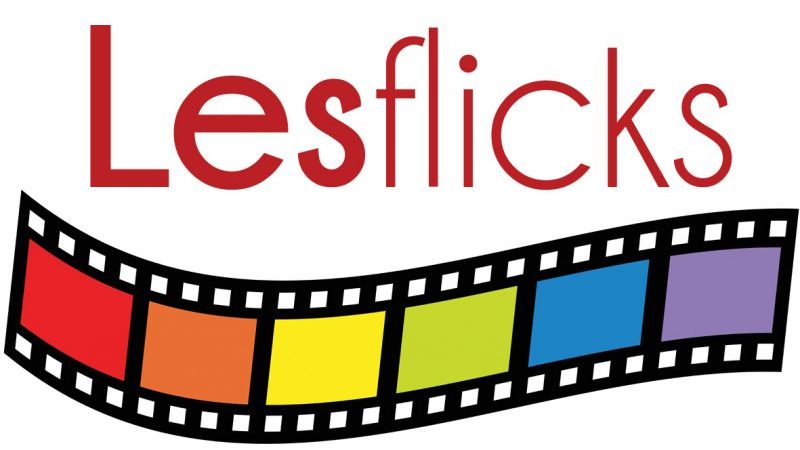
Why Naomi Bennett Launched Lesflicks, A Film Streaming Platform For Queer Women
This week, Forbes interviewed Naomi Bennet of Lesflicks about why she launched a film streaming platform for Queer Women.
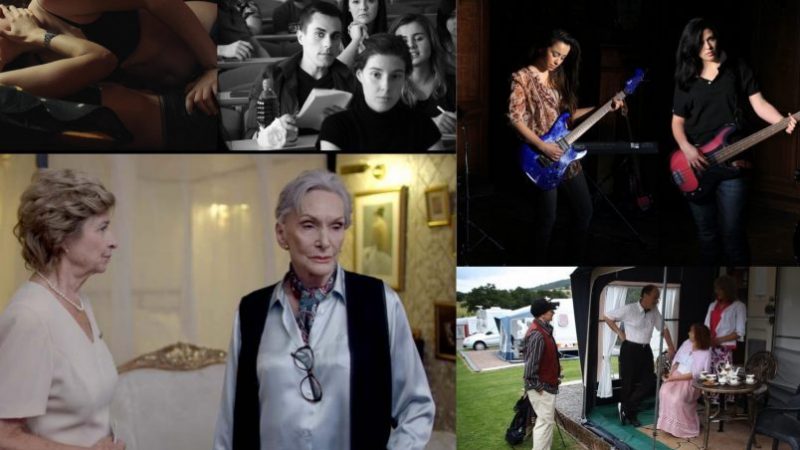
An Interview with Rachel Dax
‘Made in Wales‘ is a strategy developed by Film Hub Wales supporting the promotion and exhibition of films with Welsh connections. A film doesn’t necessarily have to be made in Wales, but might have a Welsh director, writer or storyline. This month we’re celebrating LGBTQ+ history with a focus on Lesbian filmmakers and interviewing Cardiff based writer / director Rachel Dax.
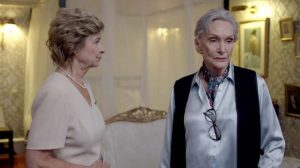
Half way into Time and Again – the latest short film by filmmaker Rachel Dax – ‘Eleanor’- played by Sian Phillips – and ‘Isabelle’ – played by Brigit Forsyth – come face to face decades after a painful betrayal. Amid their heated discussion Eleanor matter-of-factly declares that, despite the lingering heart-break, she’s actually had a ‘‘wonderful life’’…a partner…and makes it clear that she resents Isabelle’s assumption that she’d been ‘pining (over her) like some sad dyke in a warning novel’’.
It is a moment set up to challenge us, much like it challenges Isabelle. The camera barely shifts its gaze from the two of them, frozen in a moment that has been trying to catch up with them for decades. It is rare to see older, lesbian women on screen and even rarer for them to stand their ground, to state that their lives have been fulfilling – that they’ve lived. On screen, the gentle everyday, the plain white walls of their country nursing home and the almost mundane are carefully juxtaposed with this sense of restlessness…a deep desire to get up, to go, to move on and to just…be.
‘‘I think…the kind of phrase my friend uses is, ‘‘use the s**t as fertilizer’’, says Rachel who, it seems, has been preparing to write moments like the one above her whole life.
‘‘…I was quite religious when I was a teenager and I got involved with born again, Christianity…I decided that I wanted to be a preacher. So I went off to university to do theology and philosophy, a very academic degree. But at the same time I knew I was gay. So I was in this kind of very difficult state…religion, sexuality… constantly embattled in myself and eventually the sexuality – because I am a lesbian – just completely overtook everything. I didn’t quite ever get to the point of being an atheist, but I rejected that very extreme religion I was involved with”.
After graduating, she became a secondary school Religious Education teacher…
‘‘…And I hated it. I just got to the point thinking I really can’t do this anymore. One of my partner’s best friends moved to Cardiff, and we went to visit a few times and thought…there seems to be lots going on here. I was meeting lots of artistic people and I’d always wanted to be an actor. And I thought maybe this is an opportunity to do something new”.
And within just a few months, fate struck – she started doing acting courses, writing courses and eventually went back to university to do drama, where she ended up taking on a film writing module ‘‘for a laugh”.
‘‘As soon as I started doing that, I realised I didn’t want to be an actor at all. I wanted to be a writer director. So suddenly I was taking every option I could in film…which took me by surprise, but it’s actually become my greatest passion of all”.
Rachel is also an all round creative with several anthologies and audio stories to her name, not to mention that she never really gave up on teaching having continued onto a successful career in Higher Education. She still maintains a close relationship with parts of that initial journey, teaching at the University of South Wales and now Cardiff University.
They have continued to support me as a creative person, as well as bring me in to do teaching. They’ve given me work, they’ve given access to equipment. I’ve been given a lot of opportunities to teach what I want in terms of creative writing and short filmmaking, but they also tweet about what I’m doing and promote me. I’ve been very lucky to have that.
I tell her that at the end of Time and Again, ‘‘I – almost ironically – scrawled down the words ‘A delicate love for oneself, becomes a delicate love for others with fury!’ I was eager not to forget this thought. It is a small something that came up again and again the evening before, as I hunched over the computer to re-watch each of the short films on her website after dinner.
I want more, but later – expanding on something she mentioned lightly in our email exchange – she said that simply wasn’t possible.
‘‘I lost my YouTube channel…it was devastating because I was really successful…millions of hits overall…I think it got shut down because of homophobia. After Trump came into power, unbeknownst to me YouTube changed its terms and conditions about how you can advertise and what you have on there. Gay content started to become marginalised and I didn’t know any of that at the time. I put up my film ‘A Delicate Love’ – it got something like 10,000 hits in a week. I was advertising it on Twitter and on one of my tweets I put hashtag gay sex. I think YouTube decided that violated their terms and conditions for advertising or…and I don’t know for sure… somebody homophobic might have hacked my account… because I would get the same email… We’d like to inform you that due to repeated or severe violations of our Community Guidelines your YouTube account has been suspended…After review we determined that activity in your account violated our Community Guidelines….Every time I appealed, I just got this email back. So I uploaded my best films to Vimeo instead’’.
Luckily, she clarifies, she does have copies of her earlier films on a hard-drive, but didn’t have the chance to dig them out before our meeting. She assures me that I’ll get a chance to watch them at a later date.
In contrast, Time and Again has been on BBC iPlayer for over a year (available until Sunday 28th February):
‘‘…which is unheard of for a short!’’ exclaims Rachel. ‘‘It’s been broadcast twice on BBC two at nine o’clock, which is a really, really good slot…quite often, the gay films are shown very late at night, maybe about 11 o’clock and they’re on for 28 days maximum…sometimes only for a week and then they disappear off. So I’ve been very well-supported by the BBC’’.
Art imitates life, and although none of her films speak directly to the issue of being censored, the act of self censoring and holding back..and being censored by others is something we are often too familiar with having to do as queer people.
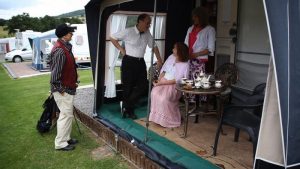 In Caravan Sight, Richard and Georgina are two prominent London lawyers who spend their weekends in Wales, swapping gender roles unbeknownst to any of their friends. For two days at the end of the every week, their hectic, high pressure lives are given a small release where they can be a little bit more of themselves. Things became tense when their homophobic boss happens to be holidaying at the same campsite, but throughout the entire film we see that learning to love our queerness makes us softer, and in turn creates more room for that love to spill over and nurture others, and our relationships with them.
In Caravan Sight, Richard and Georgina are two prominent London lawyers who spend their weekends in Wales, swapping gender roles unbeknownst to any of their friends. For two days at the end of the every week, their hectic, high pressure lives are given a small release where they can be a little bit more of themselves. Things became tense when their homophobic boss happens to be holidaying at the same campsite, but throughout the entire film we see that learning to love our queerness makes us softer, and in turn creates more room for that love to spill over and nurture others, and our relationships with them.
…it’s not only about learning to love yourself as a person…yes that own inner journey of learning self-respect and self-affirmation…but also what I try and do with all of my films is kind of very subtly teach people about LGBTQ+ issues and also homophobia. I make LGBTQ+ audience, but I always think, what would I want my homophobic next door neighbor to get from this film? Can I teach them about acceptance of LGBTQ+people? So yeah, I’ve always kind of got an eye on how I can influence the larger narrative because I think there’s a level of responsibility to be presenting LGBTQ+ people as normal everyday people…
Homophobia is – evidently – not something that can be ‘resolved’ by loving yourself, but each story in its distinctiveness does bring us back to the same feeling that ‘‘a delicate love for oneself, becomes a delicate love for others’’. And whilst this isn’t always Rachel’s first intention, she really is adept at bringing the weight of all these different feelings to screen.
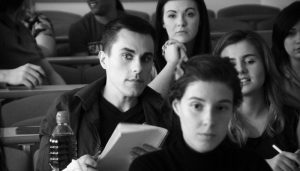
No where is clearer for me than in the film ‘A Delicate Love’, where Peter – a Maths student who works part-time in a Deli – fantasises about an older man and customer, but struggles deeply with coming out. This battle even leads him to force feelings for his long-time female friend, but e
nds in a seething inner rage that is difficult to shift, disheartening to watch and something that many of us may relate too. There is, however, a small but triumphant ending…Peter is out running and falls…injured he is offered a helping hand by another man – his colleague – the person who’s always been in his shadow, a delicate metaphor come true thanks to the cinematography of Jon Ratigan.
Threads will be mended.
She retains an incredibly positive attitude, having done exceptionally well on the international film festival circuit where she has won multiple awards. Those who get to know her stories are instantly and intimately connected to them for many different reasons, but particularly – as Rachel would say – how ‘ordinary’ her characters’ lives are.
‘‘…Most of us are actually quite sweet people who fall in love and, and we go to work and we pay our taxes and do our washing. In my own journey with my parents, because of their age…and my mum being quite religious…she realised at some point I’m really boring like her, you know? I do actually wash up and go to work… I have a normal life. I do my laundry, I think about the things that she thinks about in a day too and realising that I live a very similar life with my partner, to the one she lives with my dad suddenly made her realise that actually it really is just a question of love and of course sexual attraction, but it’s about…I love this person and we have chosen to live together, but we don’t live that differently from the way they do’’.
This – fittingly – leads us to a small anecdote about a film she once made at University.
‘‘…it was kind of a documentary. We were told to make a film on the most hideous possible task we had in our life. And so I actually took this literally, and I basically did a film about picking up the dog poo in my garden. I don’t think they enjoyed the fact that I did that but I told the truth. There were giant turds all over the screen and that the staff were like, this is the most disgusting thing. And.. I’m like… you asked me to make a film about my worst, worst job. So yeah…’’
I am humbled when she reveals that this was her first film. Rachel has literally been using ‘the s**t as fertiliser’ since she began making films. When the interview is over, I remind myself to do more of the same.
If you’re an exhibitor and would like to find out more about programming any of the films mentioned in this interview, you can find the links at the bottom of this page. You can check out more of Rachel’s short films on her website here.
If you’re a filmmaker or distributor and would like to know more about how Film Hub Wales can support the exhibition of your film, take a look at our website here.
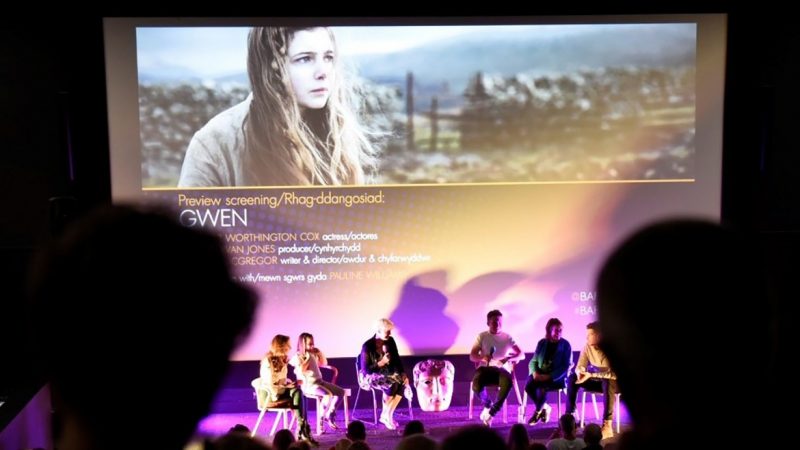
Into Film’s “Cinema’s That Made Me”: Pauline Williams From Off Y Grid, North Wales
With many cinemas still closed due to COVID-19, we’re continuing to celebrate independent venues and exhibitors across the UK in our series Cinemas that Made Me. Below we spotlight Pauline Williams from Off y Grid (Off the Grid), a multi-venue cinema project supported by Film Hub Wales, that aims to reduce isolation and increase engagement with British and independent film.
The Off y Grid project connects a collection of venues across North Wales, catering to rural audiences and celebrating a sense of place and heritage. They provide seasonal programming, with the venues working together to attract audiences. Project Manager Pauline Williams explains how this great collaborative effort benefits audiences and venues across North Wales, and reminisces about the early cinema experiences that continue to inspire her work today.
What does Off y Grid offer audiences?
More people. More films. More spaces. That’s the aim of the Off y Grid (OYG) project. OYG coordinates a unique partnership between seven venues in North Wales that work together in order to promote independent films, British and world films to audiences in rural areas. OYG also offers an array of classic films as well as celebrating Wales’ heritage through film archives.
The seven centres – CellB, Galeri, Pontio, Neuadd Dwyfor, Neuadd Ogwen, Tape Community Music & Film and Theatr y Ddraig – offer different experiences in terms of their location and spaces but share the same mindset with Welsh language culture, heritage and accessibility being central to the provision. By collaborating, we can offer more challenging films to a wider audience. By sharing ideas, we can create new cinematic experiences in the area.
Funded by Film Hub Wales, the project increases activities across North Wales in areas that often suffer from a lack of funding and a lack of artistic events. Our events forge links with the community and offer an artistic provision, encouraging and broadening horizons through film. As well as showing films we offer extra activities (like Q&A sessions) and we coordinate with film festivals and cinematic events in Wales and beyond.
We collaborate with many regular partners, but we are also ready to broaden our horizons with new partners in order to promote films. Recently we have been arranging a pop-up cinema to local communities with the aim of expanding our provision in this field as well as continuing to develop an audience of all ages in the area.
What was your first job in the film industry, and how did you end up managing the Off y Grid project?
After starting my career at the BBC in Cardiff and being trained to work on drama and television series, I moved on to work freelance before joining Gaucho as a producer and collaborating with the director Endaf Emlyn. The production company was a key contributor in the Welsh film industry, and I was responsible for the production of such successful films as Un Nos Ola, Gadael Lenin, and Y Mapiwr as well as individual dramas and series for television.
It’s my love for film and the urge to share that enthusiasm that drives my energy on the OYG project.
Did film and the cinema have an important impact on you earlier in life?
As a child, attending the weekly film club on Saturday mornings at the Majestic in Caernarfon was a magical experience. There was nothing better than waiting in the auditorium for the lights to go down slowly and the curtain to be fully opened to reveal a giant screen. Being in that darkness feeling as if in another world was such a memorable experience. I remember going with my mother to see Summer Holiday and the colours blinding my eyes. But more than that was the feeling that was stirred inside me by such powerful films.
Later I would regularly go the Coliseum in Porthmadog and Forum in Blaenau Ffestiniog (unfortunately none of these cinemas exist now). Nothing can compare to being partly in darkness and being whisked away to another world. There are no limits to the imagination. Cinema’s influence on my early years was most definitely key to my career choices.
How have those venues affected how you work today?
The experiences I had watching films on the big screen and losing myself in another world in local, community cinemas inspires me to offer similar experiences to today’s audiences. Going to the cinema was a regular, affordable experience and the programming was varied in such a way that meant that audiences could enjoy all types of films, and all on their doorstep.
Watching a movie on the big screen is a magical, enchanting experience. Being part of an audience that experiences a common emotion is an inclusive, mystical feeling. A film can make us marvel. It offers a key to other worlds. It evokes emotions. It is inclusive and transformative.
While Off y Grid venues have been closed due to COVID-19, have you begun any new initiatives to reach audiences at home?
CellB have been working assiduously to maintain and promote Gwallgofiaid (a not-for-profit that provides training for young people) by arranging online sessions with Rhys Ifans as a mentor for a short film making project.
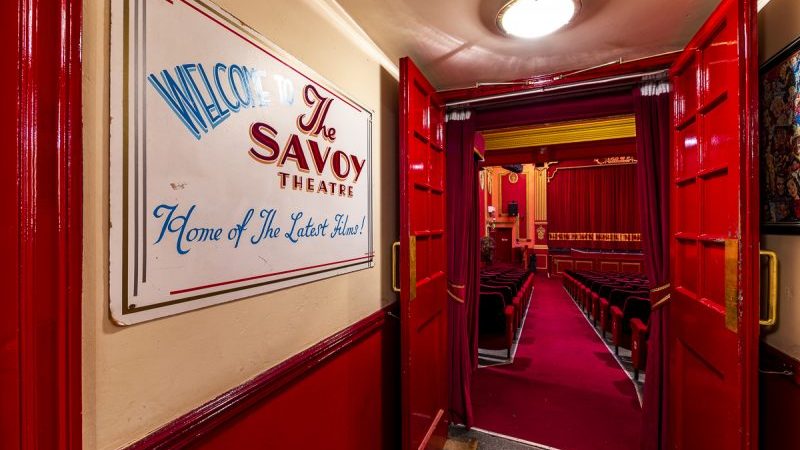
Into Film’s ‘Cinemas That Made Me’: Chris Ryde From Monmouth’s Savoy Theatre
With cinemas closed due to COVID-19, Into Film are celebrating venues and cinema operators across the UK in a new series, Cinemas that Made Me. Here they pay tribute to a Film Hub Wales member, The Savoy Theatre in Monmouth, Wales, and its Director and General Manager Chris Ryde.
The Savoy has a long and fascinating history. It is one of the oldest working theatres in Wales, and is located on the oldest known theatre site in the country. Today it’s a mixed-arts venue, programming films and event cinema alongside live music, comedy and more. Director and General Manager Chris Ryde has been working at the Savoy Theatre in various roles since 2009, and brings a wealth of industry experience with him. Here, he offers some insight into the venue’s significance to South Wales as both a nostalgic link to the past and a much-loved present-day destination that has adapted to many challenges in order to survive. Long may it continue!
What does the Savoy Theatre mean to its local community?
For many, it represents a link to their past and recalls either their movie-going heritage or a link to places they were brought up. It’s a place where films were meant to be seen. It is not a box or a multiplex; it is a purpose-built venue in which films are meant to be enjoyed. Our Art Deco design motif brings back the feel of movie-going in its heyday and gives a holistic experience to customers, as they can read all about the building and put their visit into context. It is a constant joy to see the look on people’s faces as they enter the auditorium from the street and realise they have walked into a piece of history.
Where did your own history with cinema begin?
I am delighted to say that the cinema that shaped my life is still going. The Ritz in Belper, Derbyshire, which I visited for the first time in 1957, and is still in operation thanks to a husband-and-wife team (the Mundins) who bought it, restored it, and made it operational. I visited them two years ago and it was a magical experience to go back.
What was your first job working with film?
My first job in the film industry was as a trainee producer in the 1970s. I worked with Nic Roeg, Adrian Lyne, and Ridley and Tony Scott. From 1977-2012 I worked for Equity, the union for performers and creative practitioners, which brought me into contact with plenty of filmmakers, and I spent many an hour on film sets.
What initiatives are you most proud of having worked on at the Savoy Theatre?
The most successful by far was re-introducing live entertainment, because it has been a massive success, and is what people most celebrate. Second to that was getting the funds secured for digital exhibition back in 2013. We had no money and there was a real prospect that we would not be able to survive as a first-run cinema, but we got there.
While cinemas are closed due to the COVID-19 lockdown, have you begun any new initiatives to reach audiences at home?
The lockdown has had a big impact on our team, with almost all of our staff furloughed. Sadly this means we do not have the capacity to start any new projects right now, but we are keeping in touch with our audiences through newsletters and social media. We’re running a fundraiser to help the Savoy Theatre through this difficult time, and still welcoming supporters to our Friends of the Savoy scheme.
Once cinemas can reopen which film would be your first choice to see on the big screen?
The film that most exemplifies the spirit of the Savoy: The Smallest Show on Earth with Peter Sellers and Margaret Rutherford, made in 1957. I’d love to play it here.
If you’re a fan of the Savoy Theatre and would like to support them at this difficult time, you can donate to Chris’s fundraiser, Savoy Survival. If you’d like to support other independent cinemas in the UK, consider donating to the UK Cinema Fund. These donations will be added to the BFI FAN COVID-19 Resilience Fund and used to offer critical relief and business continuity to exhibitors across the UK.
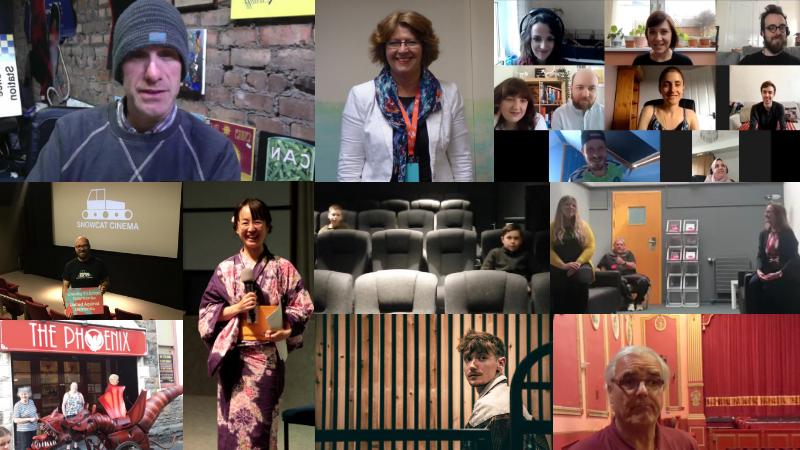
Meet the people behind Welsh cinemas during lockdown
Film Hub Wales (FHW) has awarded National Lottery funding totalling £100,000 to 16 Welsh independent cinemas and film festivals that have been severely impacted by Covid-19. Forced to close their doors at the start of UK lockdown, these venues will potentially be some of the last organisations able to reopen as the pandemic eases.
Read the full press release here.
Meet the dedicated people working behind the scenes of local cinemas and festivals, who are striving to bring communities back together through film:
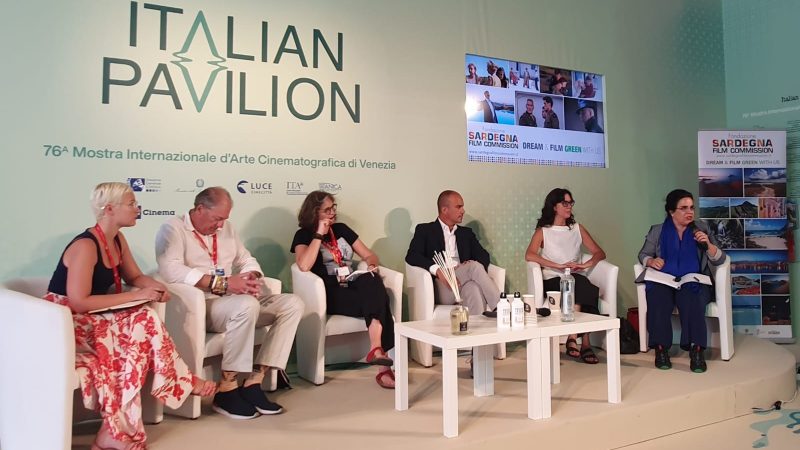
Luisa Pèrcopo Blog 2019: The Italian Film Festival Cardiff lands in Venice!
Thanks to a bursary from Film Hub Wales, on September 2019 I was able to attend the 76th Biennale del Cinema at the Lido in Venice. The Biennale runs for about 10 days and I was able to attend it for four full memorable and productive days. As managing director and artistic co-director of the Italian Film Festival Cardiff, my main objective in attending one of the most important (and oldest) international film festival in the world was to promote the IFFC as well as to increase its visibility in both Italy and Europe. In this short span of time I managed to achieve quite a lot of my objectives, no doubt helped by my a dose of two spritzes and five espressos a day to keep me going through the film marathons and razzmatazz.
Through a number of personalised meetings and impromptu encounters at the Lyon’s bar, centrally located in the festival, to see and be seen, I managed to entice a couple of the Italian Regional Film Commissions to agree to participate in the festival in Cardiff.
Both the Apulia and Campania Film Commissions are interested in joining the Sardegna and Calabria Film Commissions to support the screenings in Cardiff with films they have produced.
Pointing out that the IFFC is the only Italian Film Festival in the UK to officially offer prizes to Italian cinema was a trump card to win over some of the smaller distributors and producers. My meeting with Emera Production director, Rebecca Bassi, resulted in her submission of their documentary, Bassil’ora, which won the very first Canfod Prize for Best Documentary at the Festival.
Being present at Venice as representative of the IFFC was vital also to attend screenings of Italian/International films that had not yet been released in the UK. Francesca Archibugi’s Vivere (Living) and Alessandro Rossetto’s Effetto Domino (Domino Effect) had their world premiere in Venice and I managed to secure both films as UK premieres for our Festival. It would not have been possible without meeting both directors and producers at the Lido.
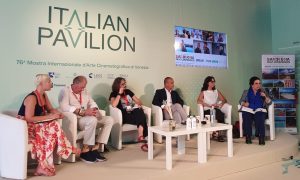 The big day for me though was Saturday 31 August. I was a guest speaker in a panel organised by the Sardegna Film Commission to promote its International partners. I introduced the Italian Film Festival Cardiff to the public at the prestigious Italian Pavilion sitting next to Adrian Wootton, director of Film London!
The big day for me though was Saturday 31 August. I was a guest speaker in a panel organised by the Sardegna Film Commission to promote its International partners. I introduced the Italian Film Festival Cardiff to the public at the prestigious Italian Pavilion sitting next to Adrian Wootton, director of Film London!
There is no doubt that the five days at the Biennale were intense and tiring and that it takes quite a lot of stamina to be always there, queueing to watch a premiere of a film, be present at the launch of a book or a film-related event, while looking smart at dinner or production parties. However, these events proved to be very successful. My meeting with director Laura Lucchetti, resulted in her participation at the Q&A session after the screening of for her film, Fiore Gemello (Twin Flower), whose protagonist, Kalill Kone, won first prize in the Best Actor category at the Festival; that with journalists from ‘Cinecorriere’ resulted in IFFC having a featured article in their September issue.
All and all a grand and successful adventure that I hope to be able to repeat this year as well!
Luisa Pèrcopo, managing and artistic co-director of Italian Film Festival, Cardiff